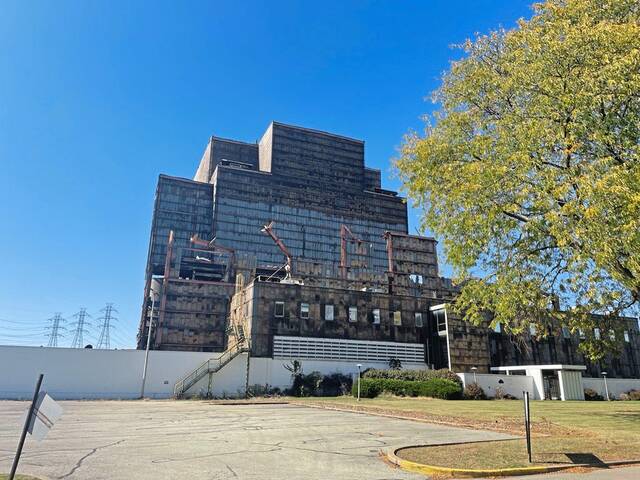https://development.triblive.com/local/valley-news-dispatch/cheswick-power-plant-implosion-plan-now-in-the-hands-of-a-judge/
Springdale power plant implosion plan now in the hands of a judge

Whether the former Springdale power plant boiler house will be demolished using explosives is now up to a judge.
Both sides in the injunction case filed their final proposed findings of fact and conclusions and, now, Allegheny County Common Pleas Judge John T. McVay Jr. must rule on whether to grant a permanent injunction that would likely force a mechanical demolition of the power plant’s boiler house — the largest structure remaining at the site off Pittsburgh Street.
McVay has not indicated publicly when his ruling may come.
In September, 16 Springdale residents filed for an injunction seeking to block an implosion of the boiler house. They allege the June 2 implosion of the smokestacks caused damage to the community. They claim that allowing the boiler house to be imploded would cause additional harm.
The injunction hearing, conducted over two months, included 12 days of testimony, as well as a court-sponsored site visit. It concluded Nov. 15.
Defendants in the case are Charah Solutions, property owner of the former Cheswick Generating Station; demolition contractor Grant Mackay Co.; and explosives subcontractor Controlled Demolition Inc.
The defendants wrote that the residents haven’t met the requirements to grant an injunction and didn’t prove that demolishing the boiler house by conventional means is safer than implosion with explosives, or is even possible, given the current structural state of the boiler house. Defendants cited testimony from Controlled Demolition President Mark Loizeaux that implosion was the safest and best way to demolish the boiler house.
The plaintiffs wrote that an implosion of the boiler house will result in hazardous dust that will travel beyond the power station’s property, the damages of which could result in personal injury, property damage and an increased risk of harm from contaminants in the dust.
The Cheswick Generating Station was a coal-fired power plant and operated for 50 years before closing in 2022.
Toxicologist S. Thomas Dydek, who was called as an expert witness by the plaintiffs, testified the symptoms plaintiffs reported after the June implosion were consistent with overexposure to the metals and fibrous material deposited by the blast, the plaintiffs wrote.
The defendants argued, however, there is insufficient evidence that any acute respiratory conditions, or alleged bodily injury, was causally related to the June 2 implosion.
The Allegheny County Health Department approved Grant Mackay’s dust mitigation and control plan for the boiler house implosion. The Department of Environmental Protection interacted with the county health department and verified all asbestos had been removed, in accordance with a condition of the dust mitigation and control plan for the boiler house implosion, the defendants wrote.
“The (county health department) wanted a plan that utilized the best engineering controls available and found Grant Mackay’s Dust Mitigation and Control Plan to be sufficient with the (health department’s) conditional approval,” the defendants wrote.
The plaintiffs failed to demonstrate irreparable harm and also failed to demonstrate that greater injury would result from refusing the injunction rather than granting it, the defendants wrote.
The plaintiffs wrote that a permanent injunction could only be in the public’s interest.
“The public will be helped, and certainly not harmed, by cessation of any future blasting on the power station premises. It is inconceivable how preventing future blasting could adversely affect the public,” they wrote.
Copyright ©2026— Trib Total Media, LLC (TribLIVE.com)
